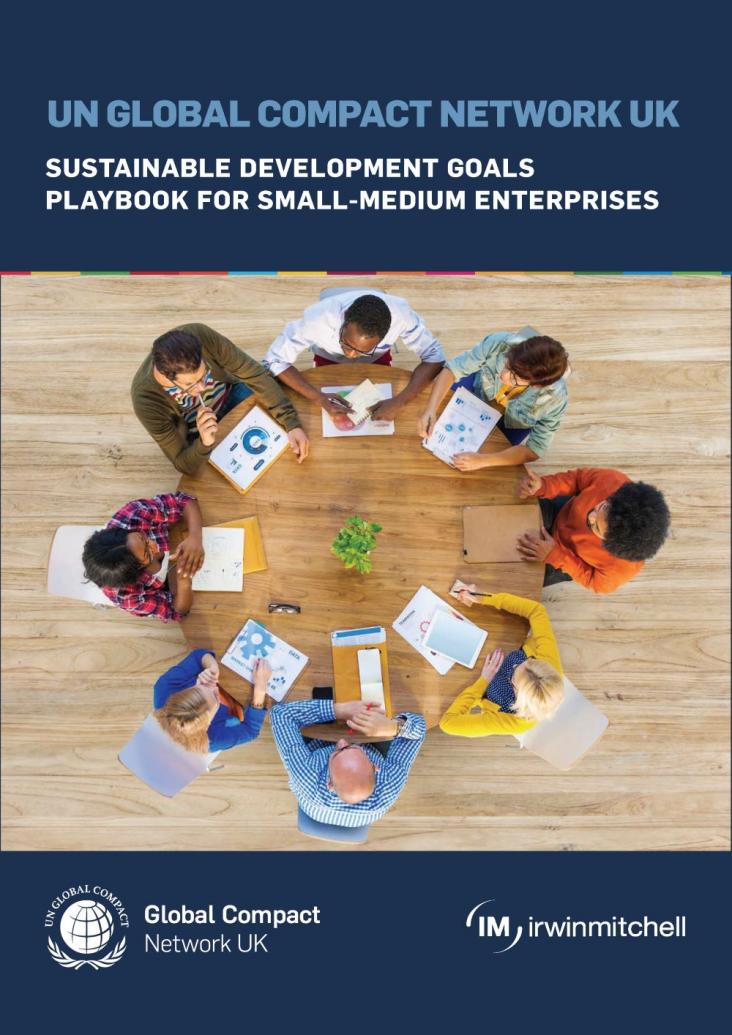This chapter aligns with SDG Goal 5: Gender equality and Goal 9: Industry, innovation and infrastructure by exploring how to impactfully develop industries like sea cucumber aquaculture to empower women's growth within the industry.

The UN Global Compact Network UK, in partnership with Irwin Mitchell, has developed the SDG Playbook for SMEs: a step-by-step guide to help smaller companies unlock the competitive advantages associated with embracing the Sustainable Development Goals.
This chapter advances the UN SDG goals 9 and 15 by reviewing how industry and infrastructure development can infringe on snow leopard habitat and how sustainable business drivers can encourage companies to engage in biodiversity conservation efforts.
The results of this study, which looks at the emissions and performance of the ICE fueled by ethanol, are in line with SDGs 7 and 13. Regarding optimization and prediction, the distinctive combination of ANN and RSM encourages sustainable industrialization, more conscientious consumption, and more ethical production patterns. All these are crucial components of SDGs 9 and 12. To make refined decisions and achieve improved performance and emissions, this research can benefit engine producers and researchers. This alliance between scholars and industry stakeholders supports SDG 17 (Partnerships for the Goals), which also encourages knowledge-sharing to advance the SDGs as a whole.
This text ties into several Sustainable Development Goals (SDGs), particularly SDG 9 (Industry, Innovation, and Infrastructure) and SDG 11 (Sustainable Cities and Communities). It highlights the role of sensors in advancing smart technologies and infrastructure, which can optimize industrial processes, improve healthcare, and contribute to sustainable urban development. Additionally, it touches on SDG 3 (Good Health and Well-being) through the potential of wearable and implantable sensors to enhance health monitoring and disease prevention.
This article tackles the issue of high energy consumption created by data centers. They find an immediate way to quickly mitigate some of the massive energy sink is by simply operating data centers at higher temperatures. As such, this article supports SDGs 9 (ensuring data centers that are key to current society are sustainable) and 13 (a rapid solution to immediately reduce fossil-fuel driven energy consumption).

In The World We Want we explore key themes related to the SDGs: leadership, innovation and youth. Dr. Márcia Balisciano, Global Head of Corporate Responsibility, interviews influencers and thought leaders across disciplines on key topics to achieve the global goals.
UN's Summit of the Future 2024: Paving the Path for SDG Resources
In China, renewable energy technological innovation (RETI) is the core pathway to addressing climate change and achieving carbon neutrality. Using the dataset from 30 provinces in China during 2007–2018, this paper provides a detailed analysis of the moderating role of Intellectual Property Rights protection in RETI's impact on carbon emissions. A deeper understanding of the impact of intellectual property rights (IPR) protection on the carbon reduction effect of RETI can provide policymakers with more specific information to support SDG 7 and 13.

